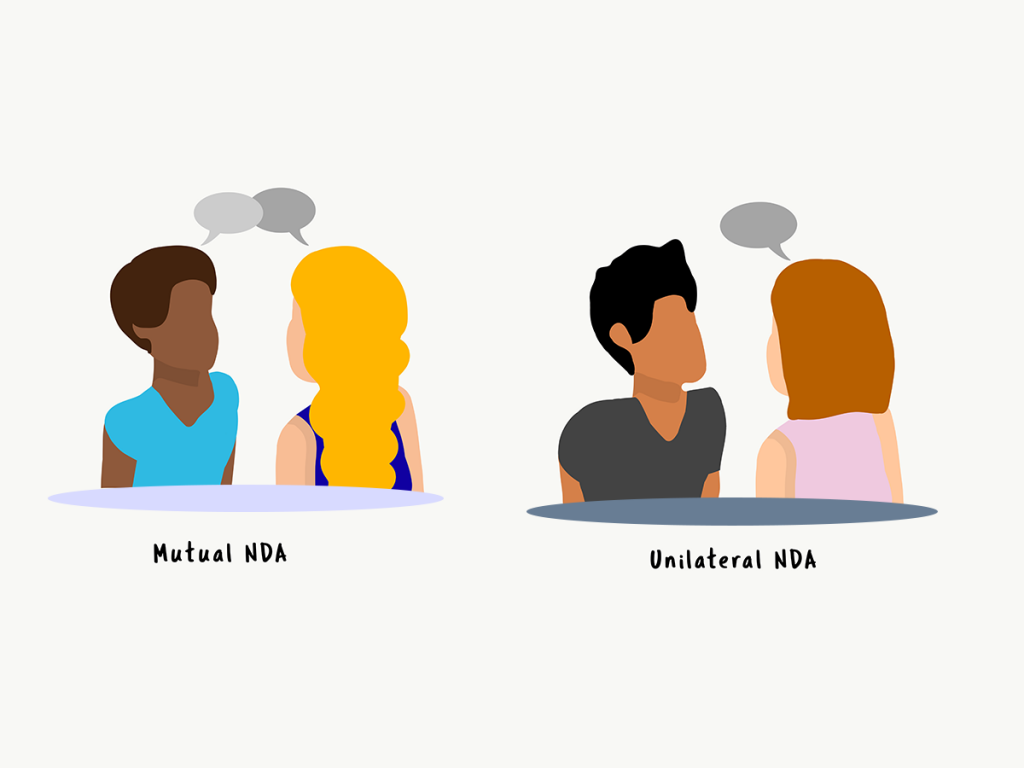A bit of healthy business competition doesn’t hurt. In fact, it usually drives individuals and companies to find new and creative ways to better themselves. But what if your direct competitor learned a few of your secrets, such as the schematics of the innovative product you were set to launch — and let their own version loose before you ever had the chance to make an announcement?
Some businesses have learned the hard way that trade secrets and certain processes need to be held close, which is why NDAs (non-disclosure agreements) are so prevalent in today’s workforce.
Get this: approximately one-third of the U.S. workforce is bound by an NDA!1
In this Article:
- What is an NDA?
- Why Does My Business Need an NDA?
- Types of NDAs
- Key Functions of an NDA
- When to Use an NDA
- What May Invalidate an NDA?
- Sources
What is an NDA?
A non-disclosure agreement is a legally binding contract that forbids someone from sharing information considered to be confidential. Confidential information should be specified in the agreement and may include information such as:
- Finances
- Product development and launches
- Marketing plans
- Client information
- Manufacturing processes
The above is only a small fraction of what could be considered sensitive and confidential information that, when obtained by others, could damage a company.
The Parties Involved in an NDA
Those partaking in NDAs are called:
- The disclosing party, which is the individual or entity sharing the information; and
- The receiving party, which is the individual receiving the confidential information.
In certain types of NDAs where two people or groups are sharing confidential information, each party may be both the disclosing and receiving party. Non-disclosure agreements are also called:
- Confidentiality Agreements (CA)
- Proprietary Information Agreement (PIA)
- Confidentiality Statements (CS)
- Confidentiality Disclosure Agreement (CDA)
- Secrecy Agreement (SA)
Why Does My Business Need an NDA?
If you’re the head of a company and you’re developing an idea that you want to keep from other ears and eyes, in an ideal world, you’d be the only one to know about it. But in the development stages, you’ll likely need engineers, marketing staff, programmers, and a slew of other personnel to get your idea to completion. While you won’t need to divulge information to every employee, those working on it directly can make a legal promise not to share these ideas with competitors or the general public, as the spread of information could sink the idea before it even materialized.
This is one small example of why businesses need NDAs. Any business that has proprietary information or any methods, designs, or anything else unique to their business can essentially lock that information away with an NDA.
Types of NDAs
There are two kinds of NDAs — unilateral and mutual.
Unilateral NDAs are more common and normally involve information that is shared with contractors or employees of companies. They are one-way agreements, which means that one person (the receiving party) is bound to the agreement.
Mutual NDAs are less common and involve two people that may come together with a business idea and both need to share sensitive information with each other. Mutual NDAs are also called bilateral or reciprocal NDAs, and in the contract, both parties agree to protect each other’s confidential information.

Key Functions of an NDA
The main point of an NDA is to prevent the spread of information to competitors, the public, and anyone else who can use this information to gain leverage on a person or business. Once information is released into the public by the disclosing party, the receiving party no longer has an obligation to keep the knowledge to themselves.
- A good NDA will clearly express what information is public and what must be kept secret.
- NDAs protect sensitive information, and if the contract is breached, the injured party is given grounds for legal recourse.
- NDAs also help innovators keep patent rights on new concepts or products.
When to Use an NDA
There are a number of reasons and instances for using an NDA. Here are a few commonplace situations where NDAs are used:
- Working with subcontractors that may need temporary access to sensitive information
- Presenting a new business idea to potential investors or partners
- Disclosing finances and operations with an individual or company that intends to buy your business
- Presenting a new product to a potential buyer
- Interviewing new employees, especially when company secrets must be divulged in the interview process
- Allowing employees to access sensitive and proprietary information necessary to fulfill their duties
- Outsourcing to developers who may have access to knowledge of product launches
What May Invalidate an NDA?
Not every non-disclosure agreement is airtight. If an NDA is missing critical information or doesn’t stay within lawful bounds, the document may be worth less than the ink printed upon it. Let’s review some important instances that may invalidate an NDA.
- Disclosures made prior to the NDA. If confidential information was disclosed to the receiving party prior to entering into the agreement, the NDA may not retroactively enforce prior information. If a specific clause is written in that covered this, then information disclosed before signing may be protected.
- Foreign jurisdictions. An NDA may not be enforceable if the person signing lives in a different country.
- Broadness. If an NDA does not explicitly specify the information that must be kept private, it could be considered to be too broad and therefore unenforceable.
- Improper execution. If the NDA is missing key information such as the legal name of the business, or more importantly, the signature of the receiving party, the NDA could be worthless.
